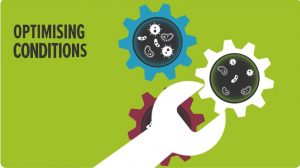A recent UKWIR report aims to evaluate alternatives to traditional water treatment, in particular the effectiveness of low or non-chemical treatments that could replace conventional clarification processes. The research considers a variety of systems with different benefits, and emphasises that each may have advantages in different conditions. Ceramic membranes and Hollow Fibre Nanofiltration were identified as promising in terms of the potential to reduce both chemical use and the need for multi-stage treatment.
The full report is available to view here on UKWIR’s website.
Dr Francis Hassard, who leads EBNet’s Water Biofilms WG, said: “This is a thorough report assessing a wide range of factors, including capex and opex, land and carbon footprint, ease of operation and maintenance, and range of contaminants removed. The work includes some nature-based solutions like constructed wetlands and lagoons, but the main emphasis is on physico-chemical approaches. There is a great deal going on in the field of biofilm-based microbial systems: and recent advances in understanding mean that even ‘traditional’ technologies are undergoing. It would be good to see a similar report focusing on current, near-market and emerging biotechnology approaches.
For recent EBNet posts on advances in slow sand filtration (SSF) see here. And don’t miss the WB WG’s SSF animation [subtitled version also available here].



